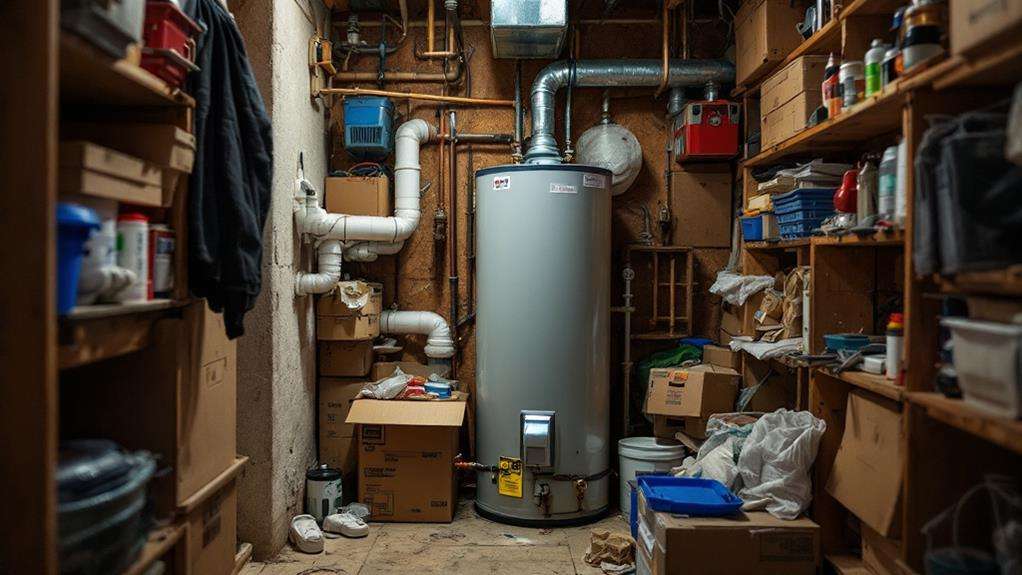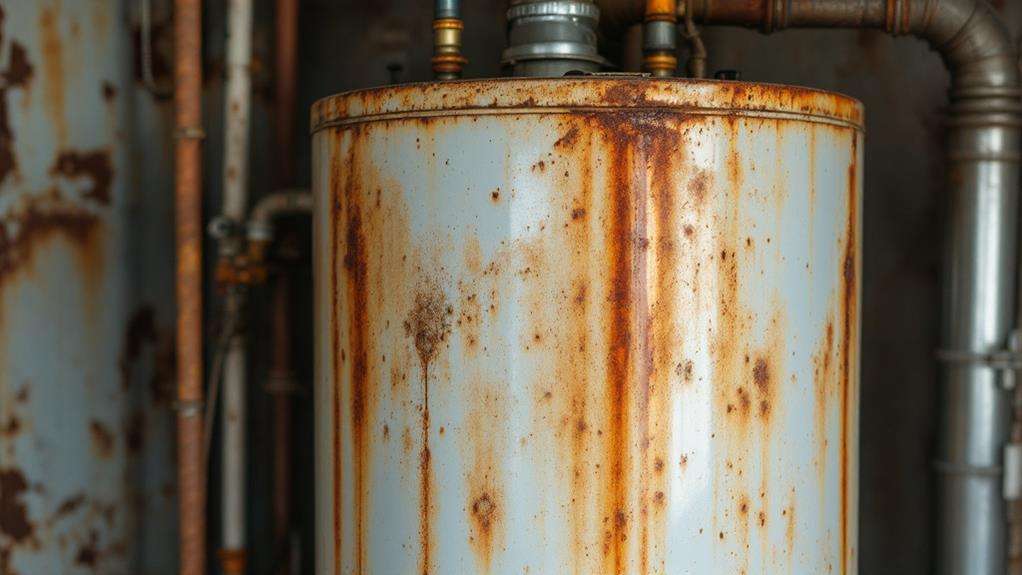Common Mistakes to Avoid When Buying a New Water Heater
When buying a new water heater, avoid overlooking the tank size needed for your household's hot water demands, disregarding energy efficiency for long-term savings, and ignoring the importance of the installation location. You should also carefully consider the appropriate fuel type and not neglect regular maintenance to prevent issues and extend the lifespan. Making informed decisions on these key factors will ensure you select the right water heater and avoid costly mistakes. If you'd like to learn more about these common pitfalls and how to sidestep them, continue reading our in-depth guide.
Key Takeaways
- Failing to properly size the water heater based on household hot water demand and number of bathrooms, appliances, and family members.
- Overlooking energy efficiency and long-term cost savings when selecting the water heater model.
- Ignoring the importance of adequate ventilation and accessibility for the water heater's installation location.
- Neglecting to consider the compatibility of the water heater's fuel type with the home's existing infrastructure.
- Underestimating the significance of regular maintenance and the water heater's expected lifespan.
Overlooking Tank Size Requirements
When buying a new water heater, it's easy to overlook the importance of tank size. Many homeowners focus solely on the heater's energy efficiency or cost, forgetting that the tank capacity needs to match their household's hot water demands. Choosing a tank that's too small can leave you with cold showers and frustrating interruptions, while an oversized unit wastes energy and money. It's crucial to consider factors like the number of bathrooms, appliances, and family members when determining the appropriate tank size.
Additionally, don't forget to account for accessibility and vent clearance. The heater must be placed in a location that allows for easy maintenance and replacement, with sufficient space around the unit for proper air circulation. Overlooking these installation requirements can make future servicing a headache and even compromise the heater's safety and efficiency. Take the time to carefully measure your space and consult with a professional to ensure you select the perfect water heater for your home.
Disregarding Energy Efficiency
Disregarding energy efficiency when selecting a new water heater can cost you significantly in the long run. While the initial purchase price may be tempting, prioritizing energy efficiency will save you money on your utility bills for years to come. Look for the Energy Star label, which indicates the model meets strict energy-efficiency guidelines. Research the water heater's annual operating costs, and compare it to more efficient models. Don't just assume a well-known brand will be energy-efficient - research each model's specific energy ratings. Additionally, pay close attention to the warranty details, as longer and more comprehensive coverage can offset the higher upfront cost of an energy-efficient unit. Remember, a slightly higher purchase price for an energy-efficient water heater will be recouped through lower monthly utility bills, making it a sound long-term investment for your home.
Ignoring Installation Location

Neglecting the installation location of your new water heater can hinder its efficiency and shorten its lifespan. When choosing a spot, don't overlook the importance of considering ventilation needs. The heater requires adequate airflow to function properly and prevent overheating. Placing it in a cramped or poorly ventilated area can compromise its performance and increase the risk of safety issues.
Prioritizing accessibility is also crucial. You'll need to be able to reach the unit easily for routine maintenance and any necessary repairs. Opt for a location that offers convenient access, whether it's a utility closet, a basement, or a dedicated water heater alcove. This will save you time and hassle down the line.
Failing to Consider Fuel Type
Along with considering the installation location, you'll also want to think carefully about the type of fuel your new water heater will use. This decision can have a significant impact on your utility costs and may require compatibility with your home's existing infrastructure.
For instance, if you opt for a gas-powered water heater, you'll need to ensure your home has the necessary gas lines and connections to support it. Failing to do so could lead to costly renovations or the need to choose an alternative fuel type. On the other hand, an electric water heater might be simpler to install but could result in higher monthly energy bills, depending on your local utility rates.
Carefully weigh the pros and cons of each fuel type, considering factors like efficiency, long-term operating costs, and the feasibility of installation. By making an informed decision about the fuel source, you can avoid unexpected expenses and ensure your new water heater is a good fit for your home.
Neglecting Maintenance and Lifespan

Proper maintenance and considering the lifespan of your new water heater are crucial factors to keep in mind. Many homeowners make the mistake of neglecting these important aspects, which can lead to costly issues down the line. Don't make the same mistake - be proactive in maintaining your water heater to ensure it operates efficiently and lasts as long as possible.
Neglecting to regularly flush and inspect your water heater can result in sediment buildup, reduced efficiency, and even premature failure. Additionally, not budgeting for its eventual replacement can catch you off guard when the time comes. Water heaters typically last 8-12 years, but this can vary depending on the unit and usage. Underestimating repair costs is another common pitfall - minor issues can quickly escalate if left unattended. By staying on top of maintenance and planning ahead for the lifespan of your water heater, you'll save yourself time, money, and the hassle of an unexpected breakdown.
